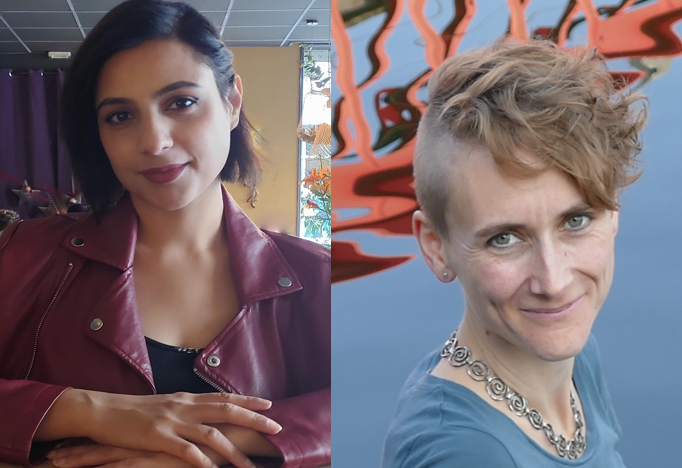
« Go back to: Events
Lecture, ‘Affective Extremism’ by Dr. Ruth Rebecca Tietjen and Hina Haq
Locatie: Hybrid

Description
‘Affective Extremism’ by Dr. Ruth Rebecca Tietjen and Hina Haq
When: December 15th, 2022, 15:30-17:00
Where: Zoom and VU Amsterdam
Registration: email to extremebeliefs.fgw@vu.nl to receive the zoom link and room number
Structure event:
The two speakers give a joined lecture, with one part that is applied, and one part that is more conceptual. They will engage in a discussion to see how these approaches mutually enrich each other and deepen our understanding of affective extremism.
Abstract Haq:
Foregrounding Affectivity in the Pathways to Extremism
The growing literature acknowledges that affectivity plays a significant role in processes which lead to violent extremism. Nevertheless, much of the work on affectivity in the context of violent extremism has so far remained a fragmented background issue. By merging philosophical accounts of Situated Affectivity and accounts of emotions from other disciplines, we attempt to bring affectivity to the foreground of the debate about violent extremism. The situated account explains the influence of environmental structures on the affectivity of individuals and vice versa. By adopting this account, we micro-analyze affective dynamics of an individual with multiple elements simultaneously. With the help of different vantage points, we elaborate on how the affectivity of an individual is shaped and/or regulated by other individuals, materials, spaces, discourses, and behaviors within an extremist movement. The approach provides a broader and richer perspective on the complexities and dynamics of affect in extremism. This interdisciplinary approach can have important implications for affect-centric counter and preventive policies related to violent extremism.
Hina Haq is a doctoral researcher in the Institute of Cognitive Science at the Osnabrück University. She is a member of the Research Training Group (RTG) on ‘Situated Cognition’ based in Ruhr-University Bochum and Osnabrück University. She has worked as program manager and psychologist at Sabaoon (De-Radicalization Centre, Pakistan) before starting her doctorate in Osnabrück. Her project in RTG is focused on ‘Affective Scaffoldings by Extremist Groups’. Her current research focuses on the situated perspective of affective bonding of recruits with extremist groups, understanding radical narratives, and the study of affective strategies by extremists and right-wing radical groups. Her PhD publication includes “Radicalization through the Lens of Situated Affectivity” (Frontiers in Psychology, 2020).
Abstract dr. Tietjen:
Extreme and Extremist Feelings
Intuitively, extremism is not only a matter of beliefs and actions but also of feelings and, particularly, extreme feelings. Here, I use the concept of feeling as an umbrella term to cover all kinds of affective phenomena, including emotions, moods, passions, sentiments, bodily feelings, and the like. But what is it that makes a feeling “extreme”? And how exactly do extremism and extreme feelings relate to each other? I first distinguish various ways in which affective phenomena can be “extreme,” thereby drawing on contemporary philosophy of emotion. I then turn to the question of when extreme feelings become extremist, thereby drawing on the contemporary research on extremist affectivity in philosophy, political theory, and social psychology. Third and finally, I ask whether all extremist feelings are “extreme” in any meaningful sense. In doing so, the talk offers both an exploration of the concept and idea of extreme and extremist feelings and a critical reflection on the question of whether and in what sense the concepts of extreme and extremist feelings are helpful to understand (and confront) extremism.
Dr. Ruth Rebecca Tietjen is an assistant professor at the Department of Philosophy at Tilburg University. Her research is situated at the intersection of philosophy of emotion, philosophy of religion, philosophical anthropology, ethics, and political philosophy. It is focused on the ethical and political ambiguity of religious zeal and the affective dimensions of fanaticism, populism, and other current political movements and developments, such as climate change, misogyny, and the COVID-19 pandemic. Moreover, she is working on existential phenomena, such as anxiety, loneliness, and melancholia, and exploring the edges of language.